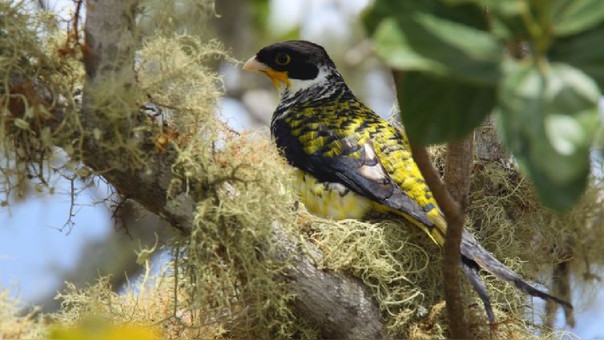Why Do Turtle Live So Long?
“Turtles do nothing and live almost 150 years.” This sarcastic quote says a lot about a turtle’s lifespan. To be honest, turtles are one of the most long-lived animals, even the smallest turtle species live around 30 to 40 years. The real question here is, “Why do turtles live so long?”
The exact reason why turtles live so long has not been determined yet. The researchers claim the following factors are responsible for a turtle’s long life:
- Slow metabolism
- Delayed reproduction
- Unique lifestyle
If you have the slightest curiosity about a turtle’s lifespan, read this article. I will discuss all the factors in detail along with the average longevity of some popular turtle species.
Why Do Turtles Live So Long?
You already know that turtles live for decades and in most cases, some turtles outlive their owners or caretakers. So, what is the deal with them? How can they live such a long and happening life?
Well, the scientists and researchers are still looking for the exact answers. With the available knowledge and resources, we can say that the below factors make a turtle live long:
- Size
- Slow metabolism
- Healthy lifestyle
- Mental relief
- Shell protection
- Reproduction
- Habitat location
Let’s explore all these factors one by one.
Size
When it comes to wild animals, size matters. According to most experts, the bigger the animal, the longer it lives. Though it is not a hard and fast rule, this logic is proved right in most species, especially for turtles.
The longest living turtles are big. Take sea turtles for example. Depending on the species, the average lifespan of these turtles is around 80 to 100 years. The oldest living sea turtle is 400 years old. An adult sea turtle can grow up to 3 to 5 feet.
On the other hand, the smaller turtles do not live as long as the big ones. But they lead a considerable life. For example,
- The red eared sliders live for more than 30 years. Their carapace growth is about 12 inches.
- Box turtles can roughly get 7 to 8 inches big and maybe more in rare cases. The average lifespan of a box turtle is 40 to 50 years. With proper care, some box turtles live for more than 100 years.
- Map turtles grow more than 10 inches and live an average life of 50 to 100 years.
- Softshell turtles can get really big. Some species grow more than 25 inches. For example, the Yangtze softshell turtle can reach 39 to 40 inches. Depending on the species and size of the turtle, the softshell turtles live around 11 to 400 years.
Slow Metabolism
Scientists believe that a faster life can lead to a short life, especially in wild animals. Similarly, slow life will lead to a longer life. This theory is called the rate of living theory and is so true in the case of turtles.
Turtles are cold-blooded or ectothermic species, which means they can not regulate their body temperature. They totally depend on the environment for warming up their bodies. As a result, the turtles do not have to waste energy on body heating.
Again, turtles have a slow metabolism. They can live on a small amount of food and water for a long time. Think about the hibernation period when a turtle survives without any food for 5 to 7 months. Not only that, when the turtles drop their metabolism, they can live on a small amount of oxygen consumption too.
The energy conversion of food to energy is also slow in turtles. As a result, the turtles undergo slow growth. Their cell also goes under the minimum damage. So, the turtles grow old much slowly.
You must have heard that turtles are slow. And this slow speed and less activity is the main key to their longevity.
Helathy Lifestyle
By healthy lifestyle, I am indicating to the diet of the turtles. Most turtle species are omnivorous, which means they can eat both plants and animal-based proteins. The experts claim that a large portion of a turtle’s diet includes vegetables and fat-free cholesterols. And vegetables are always good for health.
Also, the turtles tend to maintain a proper nutritional balance. This is the reason why turtles live a long life.
Mental Relief
Turtles are anything but not social animal. While humans stay together to stay stress-free, turtles do the opposite. They prefer spending time alone.
Also, the turtles can stay mentally relieved with a peaceful environment. A stress-free life leads to more physical activity and healthier life.
Shell Protection
Imagine having an outer shell for your body. How many accidents would you have avoided? A lot, right?
The shell of the turtles works something like security to them. It helps these animals to protect themselves from outer attacks and predators. If any animal wants to get a hold of the turtle, it has to go through the hard shell. According to a study, a turtle shell can bear more than a 350 kg attack.
In the wild, the turtles can get a surprise visit from a predator. No matter what, it is always shielded with a hard shell. So, this self-defense mechanism helps the turtles survive more years.
Reproduction
Turtles tend to have prolonged, extended, and delayed reproduction. This is an evolutionary advantage for them that let them live longer. Are you surprised?
Well, yes. Reproduction is a major reason why turtles live so long. Usually, turtles have to fight every day for survival and so they do not have much time for copulation except during the mating season.
The turtles start and grow their families slowly. They are in no rush. As they have self protection mechanisms, they are in no hurry to spread the population that can stand against the predators. According to scientists, this late reproduction system has gifted the turtles with a long life.
Habitat Location
Habitat location plays a significant role in a turtle’s life. Let’s admit the truth. You can not provide a turtle with a prolonged life in a filthy and improper environment. So, the location matters a lot.
However, different studies claim that turtles with the least fear of predators live a long life. Good water quality can also be the reason why turtles live long.
Turtle Average Lifespan
I have talked about why turtles live so long. Let’s take a look at the lifespan of different turtle species:
| Turtle Species | Average Lifespan |
|---|---|
| Leatherback sea turtle | 30 years |
| Green sea turtle | 80 to 100 years |
| Loggerhead sea turtle | 70 to 80 years |
| Hawksbill sea turtle | 30 to 50 years |
| Painted turtle | 50 years |
| Common snapping turtle | 30 years |
| Kemp’s ridley sea turtle | 30 years |
| Spotted turtle | 26 years |
| Alligator snapping turtle | 100 years |
| Common musk turtle | 30 to 50 years |
| Olive ridley sea turtle | 50 years |
| Wood turtle | 58 years |
| Softshell turtle | 20 to 50 years |
| Box turtle | 50 years |
| Map turtle | 15 to 100 years |
| Pond slider | 30 years |
How To Make Your Pet Turtle Live Longer
Different statistics have concluded that in most cases, a captive turtle lives longer than the wild one. As a responsible turtle owner, it is your duty to ensure everything that will make your pet live a longer and happier life.
Here are some factors that can the keys to your turtle’s longevity:
- Proper habitat
- Balanced diet
- Clean enclosure
- Natural vibe
- Regular health check-up
Proper Habitat
Sometimes we ignore the importance of proper habitat. But it matters most for the turtles. If you can create a properly arranged enclosure for your pet turtle, it will live a healthy and long life.
Sometimes we ignore the importance of proper habitat. But it matters most for the turtles. If you can create a properly arranged enclosure for your pet turtle, it will live a healthy and long life.
- Water filter
- Tank heater
- Heating and UV lamp
- Basking dock
Balanced Diet
The best way to help a live longer life is to feed a balanced diet. Depending on the species, turtles may prefer eating animal protein, plants, or both. Professionals think it is smart to feed more veggies to your turtles. Even if your turtle is carnivorous, feed it a small amount of vegetables.
However, fruits can be an occasional treat for the turtles. To keep the turtles’ hunting skills alive, you can provide live foods like crickets, insects, small fishes, etc. never feed junk foods, processed foods, candies to your turtle. This can cause obesity and other chronic health diseases.
Vitamin D and calcium is also important for the turtle’s diet. Sprinkle these supplements on each meal.
Clean Enclosure
Turtles are true fighters and can survive most extreme environments. So, it might seem that a filthy environment is not a big deal for these pets. But no. The turtles will not show their expression, but they really hate a filthy environment. Moreover, an unhygienic enclosure can be unhealthy for pets.
The foodscapes, urates, turtle wastages, and other dirt can spread bacterias inside the tank. The turtle will fall sick and suffer from different fungal, bacterial infections.
So, you must provide the turtle with a clean, healthy, and hygienic enclosure. Do a weekly cleaning and monthly deep cleaning. You can wash the tank with disinfectant solutions for a better wash.
Natural Vibe
The more natural you can make the enclosure, the more suitable it will be for the turtles. You can place a thick layer of a substrate at the bottom of the tank if your turtle has a tendency to burrow. Plant small vegetations or herbs that are edible by the pets. Putting several hiding places in the enclosure is a must.
Besides these, you should take your turtle out of the tank sometimes. Also, try placing the enclosure in such a place where direct sunlight is available. Make sure the room has enough ventilation for air passage.
Regular Health Checkup
Keeping the turtle mentally and physically healthy is one of the keys to its longevity. Do regular medical checkups and consult the vet. Ask him if everything is alright or not.
However, to keep the turtle stress relieved, do the following things:
- Do not scare the pet.
- Do not touch the turtle if it is not enjoying it.
- People can stress the pet. Place the enclosure in a quiet place.
- Handle the turtle with care. If you hold it in the wrong way, the pet will get panicked.
Of course, the death of any pet is not in our hands. But there is no loss trying, right?
How long does a pet turtle live?
How long does a turtle live?
How long does a painted turtle live?
How long can a turtle live?
How long does a sea turtle live?
How long does an alligator snapping turtle live?
How long does a box turtle live?
How long can a sea turtle live?
How long does a leatherback sea turtle live?
How long does a green sea turtle live?
At The End
So, why do turtles live so long? The simple answer will be evolution. These animals have been blessed with longevity genes. As a turtle owner, I hope this article will help you know the nature of your turtle more closely.




